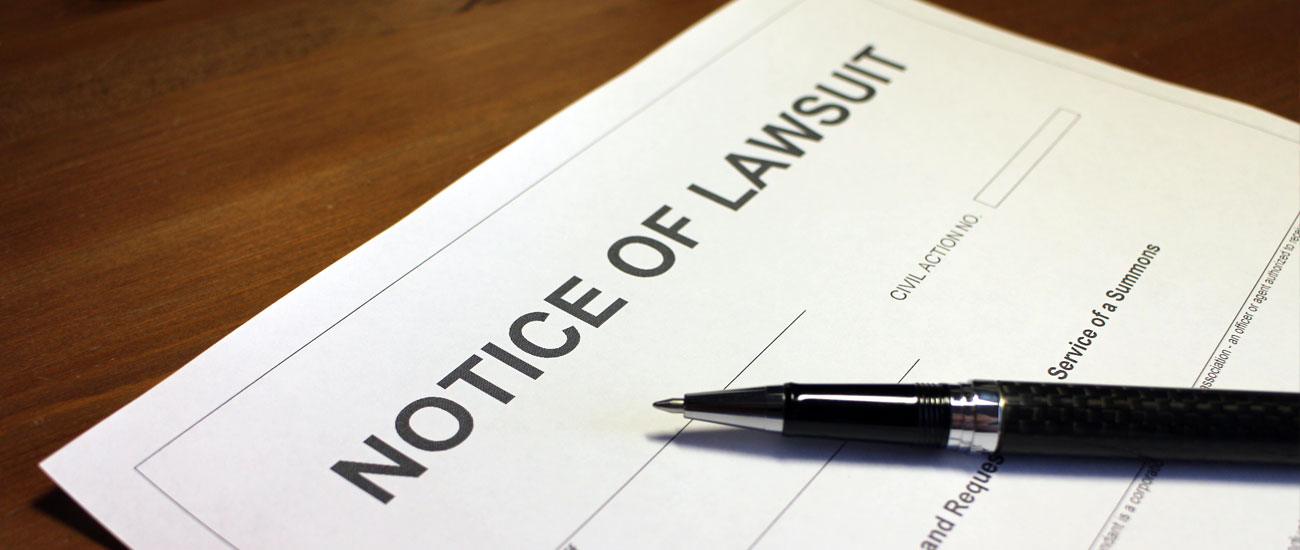Default Judgments – Avoid Them at All Costs: Ten Bad Things That Could Happen to You

So, you have been sued. There is usually a flurry of different reactions – “it’s all lies;” “he finally filed suit; “she wasn’t bluffing; “I don’t have anything for them to take;” or, that old chestnut, “we can still work it out.” These reactions are all the same, whether the suit arises from a business transaction, or among business associates, or family, or from a real estate matter.
The first response to a lawsuit filed against you should be to retain an attorney. It is not an option to ignore a lawsuit, and you have just twenty (20) days to respond. It is folly to believe that another party has hired a lawyer to file a claim against you, paid the court costs, put it on the public record and directed the Sheriff to serve the suit on you, only to let it all go and, at that point, “work it out.” At that moment, it is incredibly important that you act immediately to protect yourself and engage counsel. The time of bluffing, or ‘working it out’ has passed, at least for the moment.
If the initial twenty (20) day period had passed and you have been given the required ten (10) day notice, you should take immediate steps to retain counsel.
Failing to take a complaint filed against you seriously could have costly, possibly permanent, long-term financial, personal and business repercussions. Avoid allowing a default judgment to be entered against you at all costs.
Below are ten (10) bad things that could happen when a default judgment is entered against you:
- All facts in the complaint are deemed to be conclusively admitted by you, whether accurate or not, and whether you agree with those facts or not;
- If the complaint concerns a fixed amount of money, the default judgment will be entered against you in that amount, including court costs;
- Even if you have a winning defense, you will be unable to present it if you are under a default judgment;
- If the complaint concerns damages that are undetermined, there will be a second hearing to “assess damages” and, if you fail to appear, damages proven by the plaintiff will be assessed against you, without your defense;
- The amount of damages assessed in the default judgment is immediately a lien against all real estate you own within the county in which the default is entered, and in counties to which the plaintiff transfers the judgment, allowing the plaintiff to sell that real estate at a Sheriff’s Sale;
- As soon as a default is entered, plaintiff may send questions to be answered under oath (interrogatories in aid of execution) to you to locate assets belonging to you;
- The Sheriff may be authorized by the plaintiff to put the lien of the Court (attachment) on certain of your non-real estate assets;
- The plaintiff may send questions to be answered under oath (garnishment interrogatories) to any financial institution, including Paypal and Venmo, or other entity or person who may hold your assets or who owe you payment, such as your bank, tenants, dividend reinvestment plans, and brokerage services;
- The plaintiff, through the garnishment process, may seize your bank, brokerage, stock, bond, cryptocurrency and other financial accounts; and
- The Court may enter an order allowing the Sheriff to take other action against you, including, for example, directing the seizure or sale of your personal property, contents of your home or office, automobiles, non-publicly traded stocks and interests in partnerships and limited liability companies, seizure of rent or payments due to you and also ejecting you from real estate or determining your legal rights regarding real estate, or ownership of personal property, including stocks or your interest in your own company!
As further bad news, default judgments just don’t ‘go away,’ the lien of a default judgment, like other judgments, lasts five years and the lien may be easily and repeatedly revived, indefinitely, and may be transferred to other counties and other states.
If a default judgment has been entered against you, you must act fast to open the judgment, generally, within ten (10) days of the entry of the judgment, or there must be a defect on the face of the record that would warrant a Court striking the judgment. Of course, following this process does not guarantee that a Court will open or strike a judgment, leaving only the route of an appeal from a denial of a motion to open or strike.
All of this is an expensive process that could have been avoided with a timely response to the suit.
If you are sued, timely retain counsel and defend the action; if you are defaulted, retain counsel and timely take steps to open or strike the default. Bad things could happen if you don’t. Avoid allowing a default judgment to be entered against you at all costs.
Questions regarding this article and default judgments may be directed to Eric B. Smith, Esquire, 215-540-2653 or esmith@timoneyknox.com.






